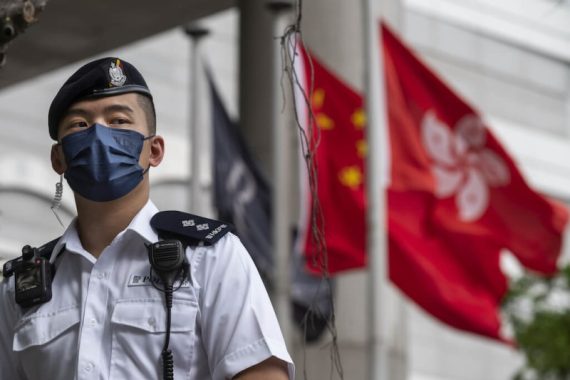I
n a move that underscores China’s expanding influence in the Pacific region, uniformed Chinese police officers have been quietly deployed to Kiribati, a remote atoll nation situated in the Pacific Ocean near Hawaii. The initiative, not publicly disclosed by Kiribati authorities, is part of Beijing’s broader efforts to strengthen security ties in the Pacific Islands, heightening its rivalry with the United States.
Kiribati, with a population of around 115,000, holds strategic importance due to its proximity to Hawaii and its control over one of the largest exclusive economic zones globally, spanning more than 3.5 million square kilometers. The nation hosts a Japanese satellite tracking station.
According to Eeri Aritiera, Kiribati’s acting police commissioner, the Chinese police collaboration involves community policing, martial arts (Tai Chi) Kung Fu training, and assistance in developing the country’s crime database program. However, Aritiera emphasized that there is no official Chinese police station in Kiribati.
Police assistance
“The Chinese police delegation team works with the Kiribati Police Service – to assist on Community Policing program and Martial Arts (Tai Chi) Kung Fu, and IT department assisting our crime database program,” stated Aritiera in an email response.
The Chinese embassy in Kiribati has not provided an official comment on the role of its police. In a January social media post, the embassy did acknowledge the leader of “the Chinese police station in Kiribati.”
Aritiera, who attended a meeting in Beijing between China’s public security minister Wang Xiaohong and several Pacific Islands police officials in December, revealed that Kiribati had requested China’s policing assistance in 2022. A group of up to a dozen uniformed Chinese police officers arrived last year for a six-month rotation.
A secret security pact
While China’s security and trade proposals were rejected by the Pacific Islands Forum in 2022, the Chinese government has since established a police presence in the Solomon Islands under a secret security pact. This move drew criticism from Washington and Canberra for potentially undermining regional stability.
According to Graeme Smith, a Pacific expert from the Australian National University, China’s deployment of police abroad serves to extend its reach over the Chinese diaspora and provides valuable insights into the domestic politics and diplomatic partnerships of host countries.
“Australia and the United States are concerned about that prospect, in Kiribati and around the region, and are taking measures to protect their position,” said Meg Keen, Director of the Lowy Institute’s Pacific Islands Program.
Recommended
From Taiwan to Beijing
Kiribati, which switched diplomatic ties from Taiwan to Beijing in 2019, has seen increased Chinese investment in infrastructure. China’s efforts also include plans to rebuild a World War Two U.S. military airstrip on Kanton Island, raising concerns in Washington.
While Kiribati’s Kiritimati island is approximately 2,160 km south of Honolulu, the United States has responded to China’s activities by pledging to upgrade the wharf on Kanton island and expressing a desire to open an embassy in Kiribati. Australia has been providing security support, donating two patrol boats and contributing to major upgrades in Kiribati’s policing infrastructure.
Papua New Guinea, another Pacific Island nation, recently rejected a Chinese offer of police assistance and surveillance technology amid concerns from traditional security partners, the United States and Australia.
Source: Reuters





